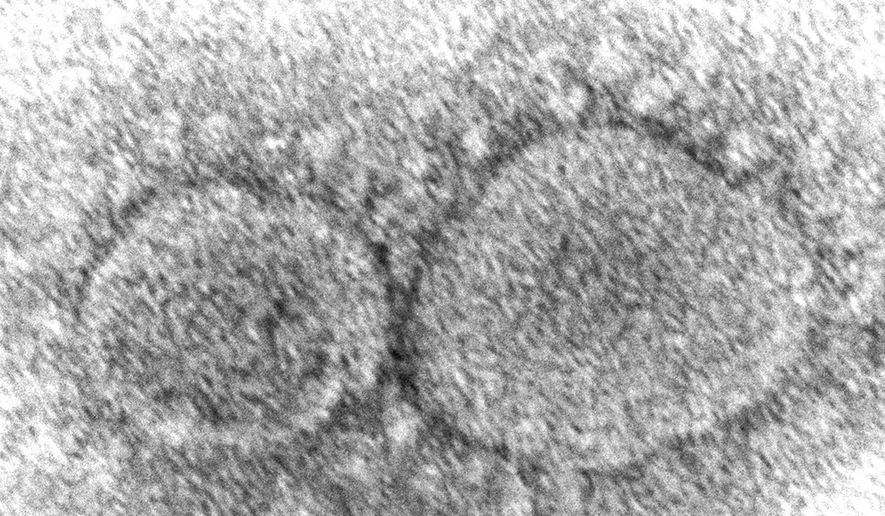An international group of virus experts on Thursday called for a new “full and unrestricted” international forensic probe of the emergence of the coronavirus, expressing concern over China’s dissembling and lack of transparency on the origins of the pandemic.
The scientists’ call for a new inquiry comes after a probe by a World Health Organization team of experts into the virus’s origin produced what critics said was an incomplete and questionable report after a recent visit to China.
“Finding the origins of SARS-CoV-2 is critically important to both better addressing the current pandemic and reducing the risks of future ones,” the group of 26 noted virologists, epidemiologists and other medical specialists stated in an open letter posted online. “Unfortunately, well over a year after the initial outbreak the origins of the pandemic remain unknown,” they added.
The scientists signing the letter included experts from U.S., Australia, New Zealand, France, Britain, Spain, Belgium, and Germany. Eleven of the experts were from French academic and medical institutes.
Two competing theories have emerged: The virus was made a “zoonotic” jump from a bat to a still-undetermined intermediary animal and then to humans, or it somehow leaked as a result of virus research conducted at the Wuhan Institute of Virology. The WHO team leader told reporters in Wuhan the lab theory was “extremely unlikely” based on their research, and Chinese officials have strenuously rejected the possibility.
But the WHO conclusions have been called into question by the Biden administration, which appears to be adopting the main thesis of the Trump administration that circumstantial evidence strongly suggests the virus leaked — either accidentally or intentionally — from the Wuhan lab.
The scientists’ letter states that all hypotheses about the virus origin need to be thoroughly explained, “without regard to political or other sensitivities.”
“Based on our analysis, and as confirmed by the global study convened by the World Health Organization (WHO) and Chinese authorities, there is as yet no evidence demonstrating a fully natural origin of this virus,” the letter says.
Structural limits imposed by the Chinese on the recent WHO visit call for a better and more detailed investigation.
“In particular, we wish to raise public awareness of the fact that half of the joint team convened under that process [was] made up of Chinese citizens whose scientific independence may be limited; that international members of the joint team had to rely on information the Chinese authorities chose to share with them; and that any joint team report [had to] be approved by both the Chinese and international members of the joint team,” the letter said.
Chinese participation in the WHO probably skewed the findings, the researchers said. The investigation team also did not have access to lab records, data and personnel needed for a thorough probe.
Also, the letter notes that one of the WHO team members was already dismissive of the lab theory — an apparent reference to Peter Daszak, of the New York-based EcoHealth Alliance, who had previously conducted extensive virus research at the Wuhan institute. Mr. Daszak’s public statements dismissing the lab leak theory “cast serious doubts as to his scientific objectivity,” the letter said.
The new probe, the researchers said, should include diverse experts, including epidemiologists, virologists, wildlife experts, public health specialists, forensic investigators, and biosafety and biosecurity experts, and all theories should be examined.
“Although the [WHO] investigation was a significant opportunity for the international community to gain some limited and highly curated information, it has unfortunately proven opaque and restrictive, greatly compromising the scientific validity of the investigation,” the letter said.
Given the toll of the COVID-19 outbreak worldwide, “we cannot afford an investigation into the origins of the pandemic that is anything less than absolutely thorough and credible.”
One of the American experts who signed was Steven Quay, a medical doctor formerly with the Department of Pathology, Stanford University School of Medicine. Dr. Quay has published a 193-page research paper that concludes “beyond a reasonable doubt that SARS-CoV-2 is not a natural zoonosis but instead is laboratory derived.”
The State Department in the final days of the Trump administration produced a fact sheet with new information linking the Wuhan institute to the possible disease outbreak. The fact sheet noted that workers at the institute became sickened with COVID-like symptoms prior to the first known public outbreak of the disease in December 2019.
The report also said that the institute was conducting research on a bat coronavirus that is 96% similar to COVID-19, and that the institute had been conducting research, including experiments on animals, for China’s military.
• Bill Gertz can be reached at bgertz@washingtontimes.com.




Please read our comment policy before commenting.